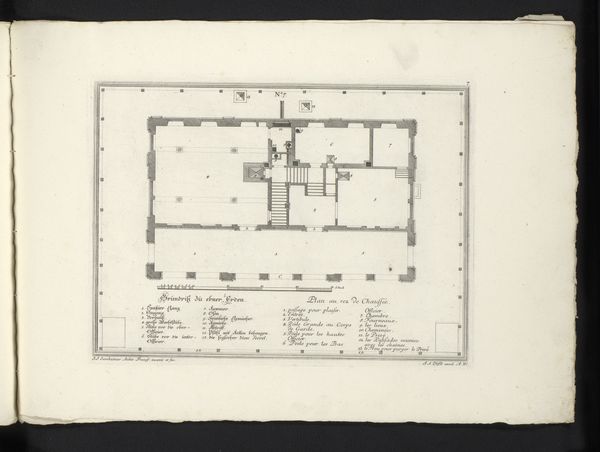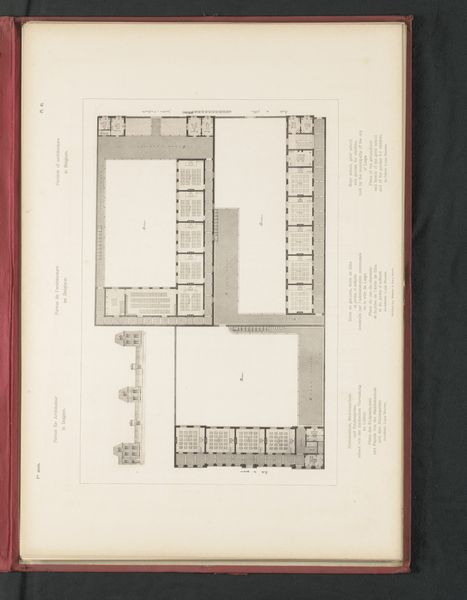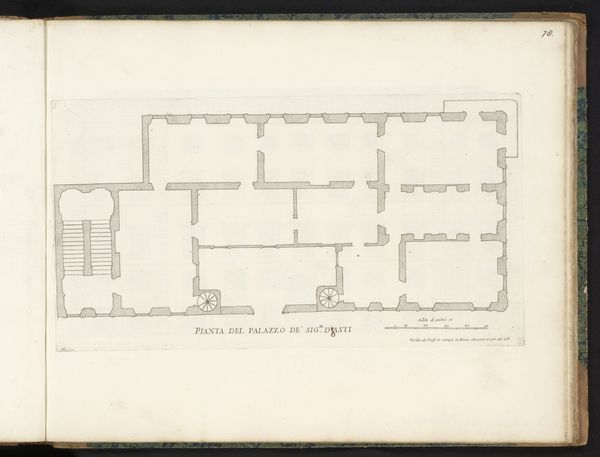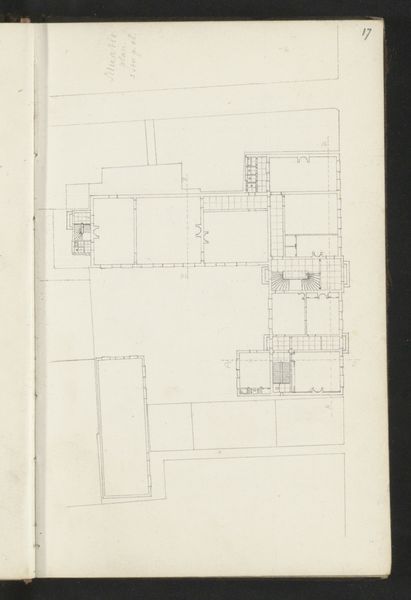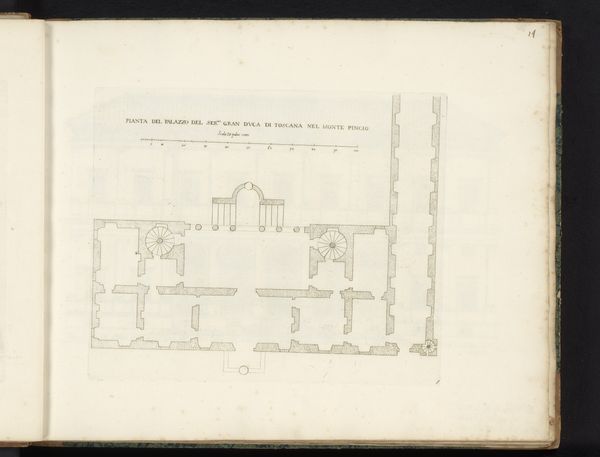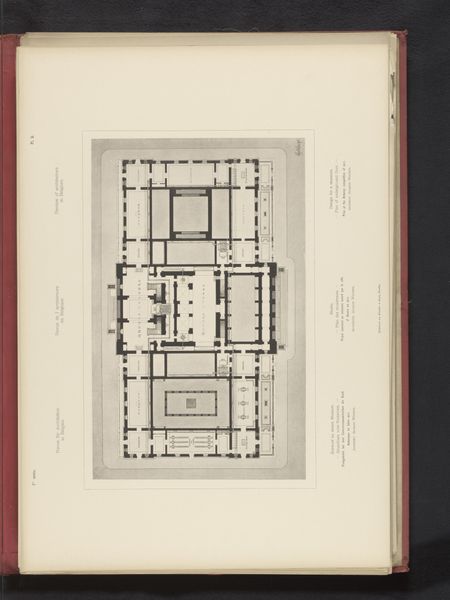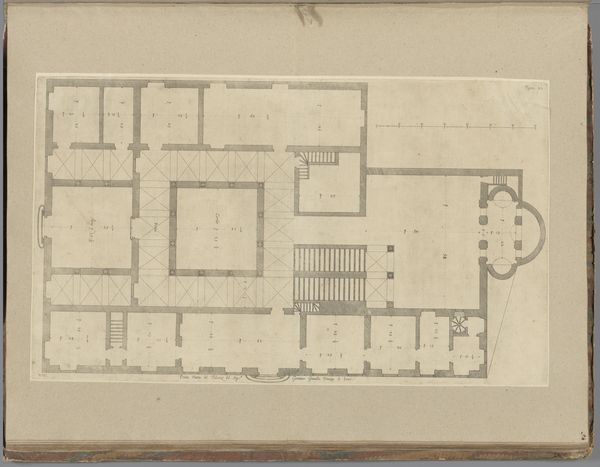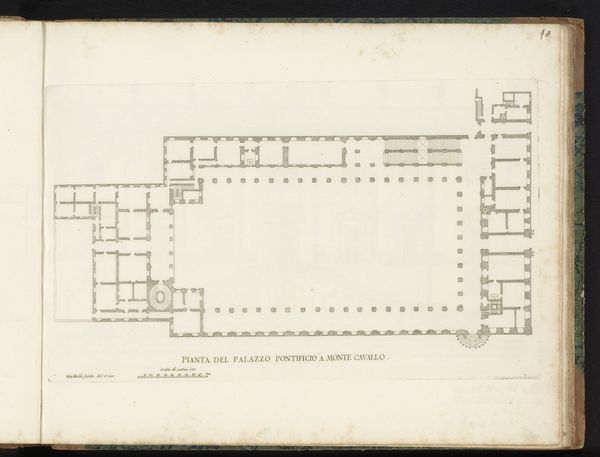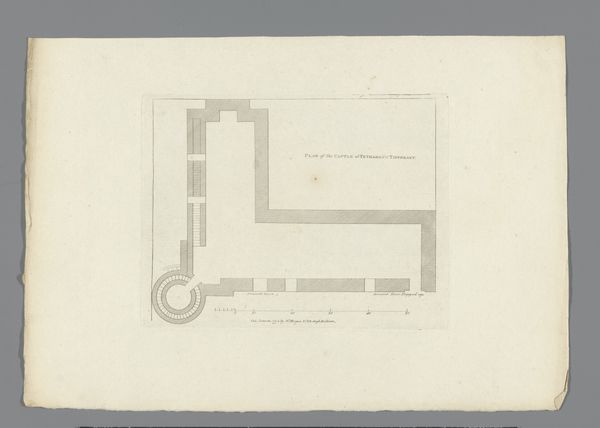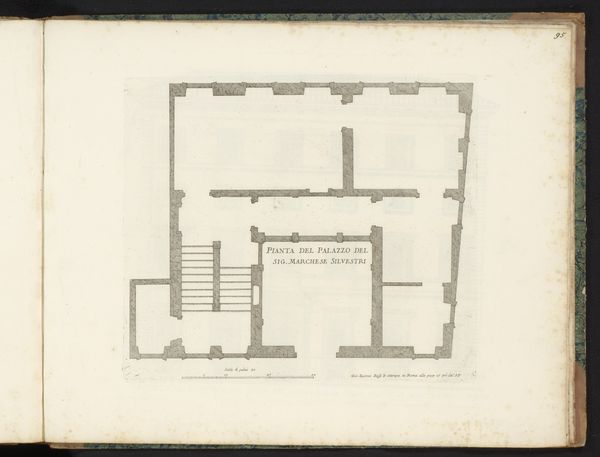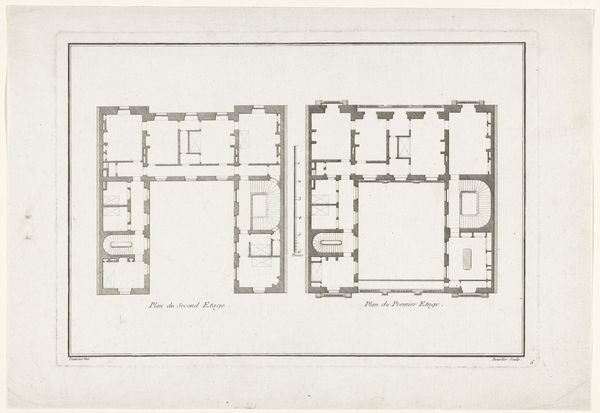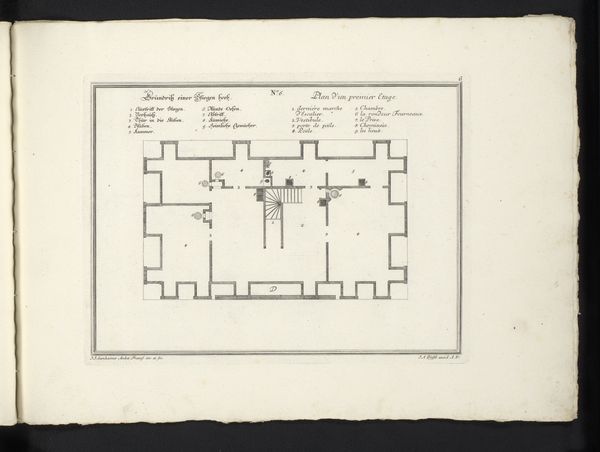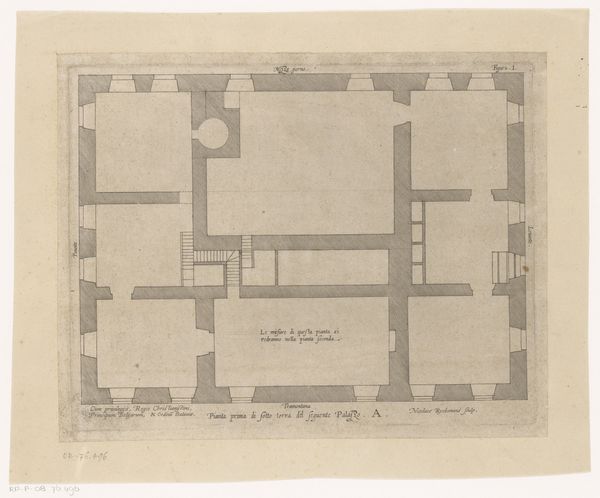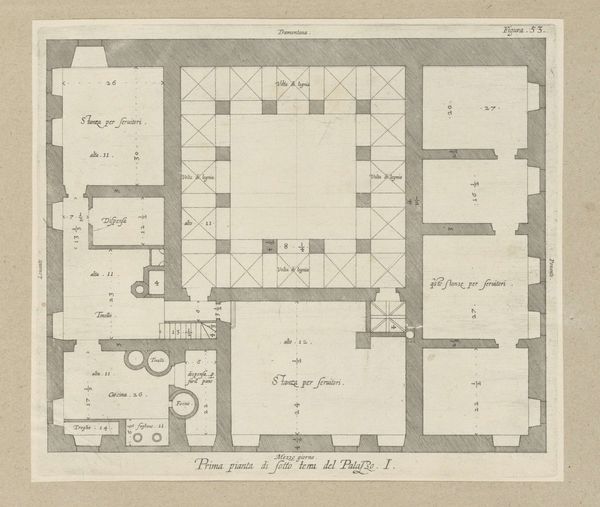
Plattegrond van de kelder van de Hauptwache, te Frankfurt am Main c. 1729 - 1730
0:00
0:00
drawing, print, engraving, architecture
#
drawing
#
aged paper
#
toned paper
#
homemade paper
#
baroque
#
ink paper printed
# print
#
sketch book
#
hand drawn type
#
personal sketchbook
#
hand-drawn typeface
#
geometric
#
sketchbook drawing
#
cityscape
#
sketchbook art
#
engraving
#
architecture
Dimensions: height 270 mm, width 362 mm
Copyright: Rijks Museum: Open Domain
This is Johann Jakob Samhammer’s ‘Plan of the Cellar of the Hauptwache in Frankfurt am Main,’ made sometime before 1745. It’s an etching, meaning that the image was incised into a metal plate, probably copper, using acid. The plate was then inked and printed onto paper. The precision of line suggests a highly skilled hand. Yet, this isn’t a work of fine art in the traditional sense. It belongs to a world of technical drawing, military planning and civic administration. The very act of mapping space is an assertion of control, a way of mastering the unknown through the power of representation. Look at the architectural details and you will see what is being recorded. This detailed representation of the cellar of the city’s guardhouse, normally hidden from view, is rendered visible through the application of expert labor. So, while seemingly humble, consider the social and political implications of this print. It's an example of how meticulous craftsmanship serves the purposes of governance, laying bare the infrastructure of urban life.
Comments
No comments
Be the first to comment and join the conversation on the ultimate creative platform.
